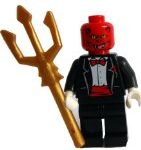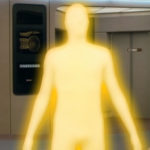We Might Have Guessed
If you listen to critics of the arts, teachers of the arts, and even a fair number of  actual artists, you will hear many praises of and exhortations to realism. If you examine art, you will find that many people have been wildly successful while showing a flagrant disregard for realism.
actual artists, you will hear many praises of and exhortations to realism. If you examine art, you will find that many people have been wildly successful while showing a flagrant disregard for realism.
A prime example of this is Twilight. (If you were an old, powerful, more-or-less immortal supernatural being, would you be in high school?) However, I am going to focus on Star Trek and Star Wars and their shared violation of realism in everything military. I have chosen this focus because that sort of (un)realism is widespread in fantasy and sci-fi, and also I like Star Wars and Star Trek and have enough firsthand experience of them to write about them.
I once read a detailed critique of a certain Star Trek episode that made a very strong case that, at the end of the episode, three important characters should have been court-martialed. This is how I learned that, in real militaries, staff officers (however senior) don’t take command from line officers (however junior).
But one doesn’t need that sort of knowledge to see that the entire franchise is built around a principle so lethally unrealistic only television can save these people. This is the principle that in any unknown or dangerous situation, senior officers are immediately placed at the point of greatest jeopardy. They routinely round the senior officers up into bands just small enough to be easily ambushed, just large enough to virtually exterminate the senior staff in case of disaster. The Next Generation made a show (hah) of not sending down the captain, except when he really wanted to go, but this did not improve the picture a great deal.
This is Star Trek’s main offense to military realism. There are smaller ones, such as the fact that the Enterprise keeps civilians as permanent residents. Consequently, they are always endangering small children, and you don’t want to think about what’s happening in other parts of the ship while the officers are hanging on for dear life on the violently-shaking bridge.
Of course, Star Trek would not be Star Trek if our heroes didn’t get to do the coolest part of everyone’s job. Star Wars’ offenses to realism are less fundamental, but somehow even goofier. Consider that the Rebel Alliance gives away generalships like Employee of the Month awards. They may give them away as Employee of the Month awards. There is no other way to explain why Han Solo is made a general fresh off the accomplishment of getting defrosted, nor why Lando is a general five minutes after being a shady businessman.
I know: the maneuver at Taanab. But look: No single maneuver will make you a general unless it wins the battle, ends the war, saves several major heads of state, and prevents an invasion of hostile aliens from another dimension.
Another premier example of Star Wars’ unrealistic war is the ground battle on Endor. I like Return of the Jedi better than most, but it is ludicrous that the battle was won by a horde of midget aliens armed with weapons that were obsolete at the founding of the Roman Empire. If the stormtroopers had stayed by the installation and defended it – which was the only reason they were on the moon – it would not have been possible for them to lose. Even when, strangely impelled to be idiotic, they charged into the trees, they should still have carried the day. Superior firepower beats superior numbers any day, and it isn’t possible to defeat professional soldiers with advanced weaponry by konking them with rocks.
Star Trek and Star Wars give every indication of having been written by people with a rather slippery grasp of military matters. That their lack of realism hasn’t kept them from smashing success doesn’t prove that a lack of realism is all right. But it does prove that when people turn to fiction, realism is not terribly high on their list of desired qualities.
We might have guessed.











































Otoh, Stargate tried (increasingly successfully) to reflect real military protocol. And it doesn’t suffer from that. There’s enough weirdness happening – realism balances that, I think.
I’ve had to the chance to work with European militaries on many occasions, including troops from the UK, France, Italy, Spain, Lithuania, Danes and others. (Mainly in Iraq and Afghanistan.)
The Eastern Europeans are more old-school, but the Western NATO allies have a looser discipline and lower level of formality that is quite Star Trek-like. So I don’t think Star Trek shows military life in an entirely realistic way. I just think it’s not what we would see in the USA. Though I agree Star Trek has unrealistic military moments, overall it isn’t bad.
Star Wars tried to portray a really desperate situation in which anybody still living would get a big promotion. Sometimes they were successful in creating that culture and sometimes not, but combat-related stuff in Star Wars is often at odds with any form of realism, more often than Star Trek (which also has weird and goofy moments). In my estimation. 🙂
Oops, one of my sentences says: “So I don’t think Star Trek shows military life in an entirely realistic way.”
I mean to say, “So I don’t think Star Trek shows military life in an entirely UNrealistic way.”
Travis is right. In the Star Wars universe, most people don’t have much combat experience, so anyone who is half-decent seems to get promoted. (In The Clone Wars, Jedi Apprentices in their early teens sometimes led in combat.)
Another interesting worldbuilding thing to think about in the Star Wars universe is that the Empire had only been around twenty years, and before The Clone Wars, it seems there was no galactic army so it’s possible that these guys didn’t get good training since very few people came from military backgrounds. By the time the Ewoks attacked, it’s also likely that many troops, especially the ones on backward places like Endor, were very green and undertrained.
The Ewoks seem war-like, and since they were apparently trapping giant predators in nets, (That meat bait wasn’t there to catch humans) it indicates that they had to fight their whole lives to stay at the top of the food chain, so this could be a case of extremely skilled killers with sub-par technology going against a bunch of inexperienced and over-confident troops who were not trained for this sort of thing.